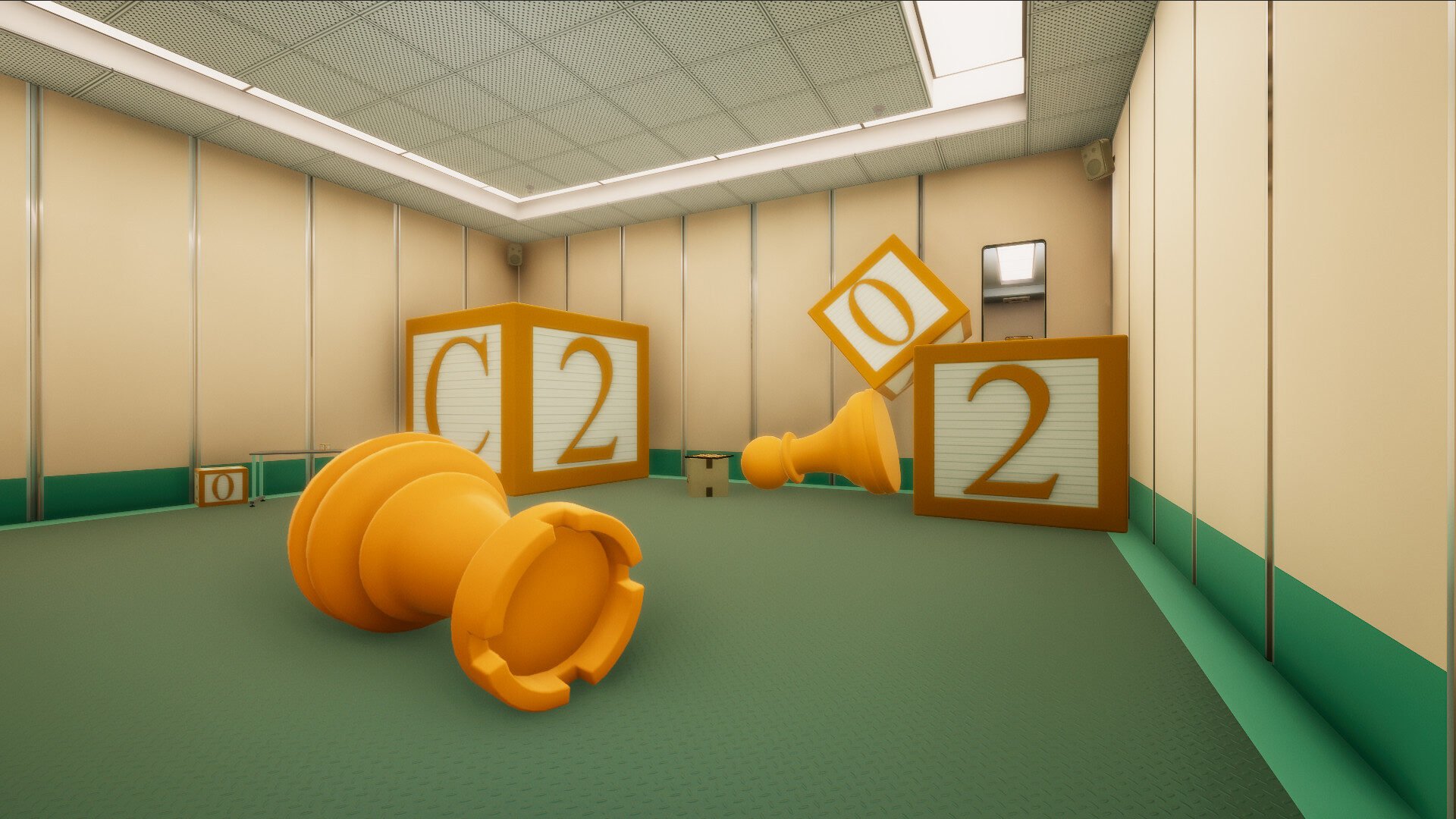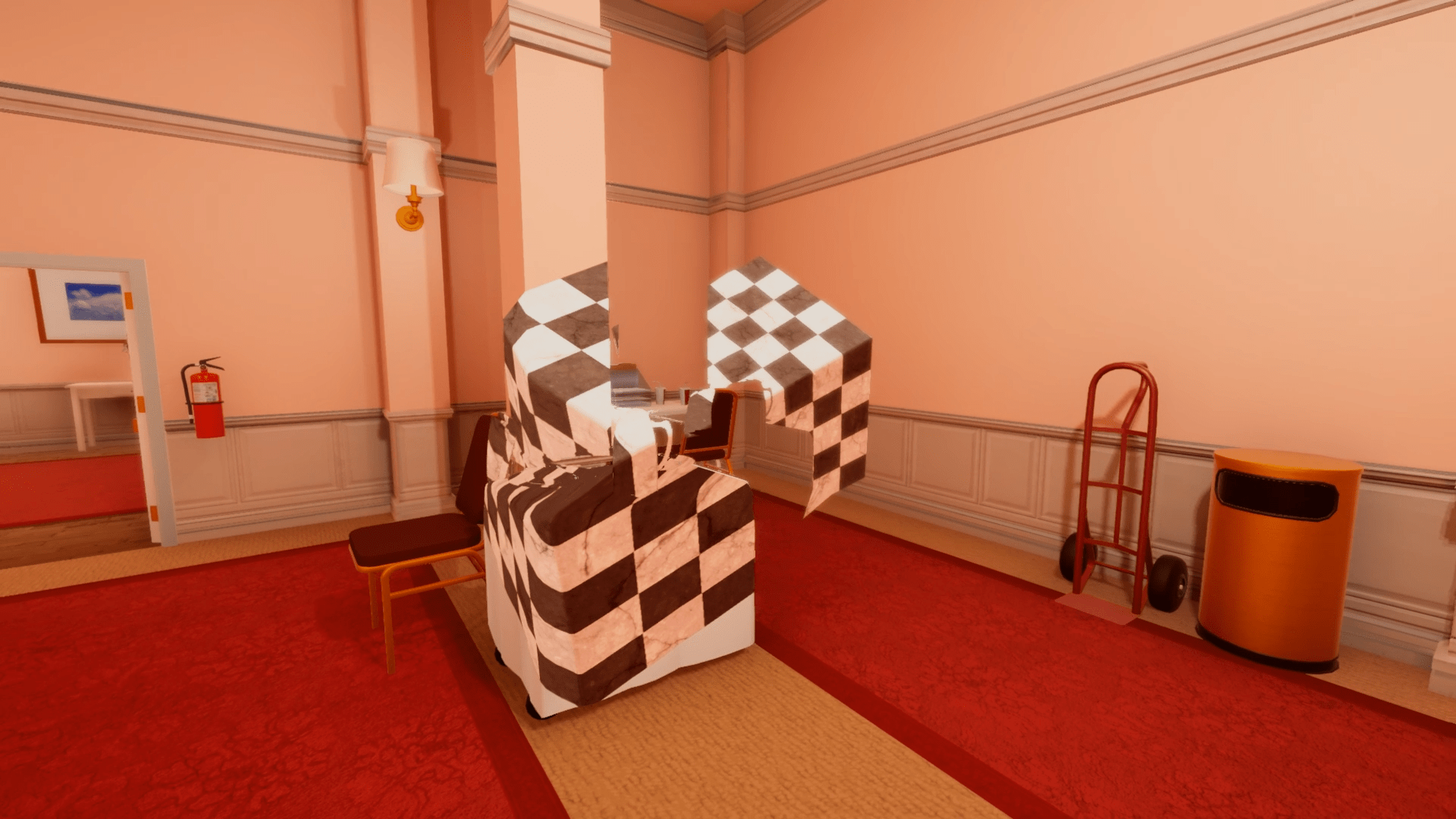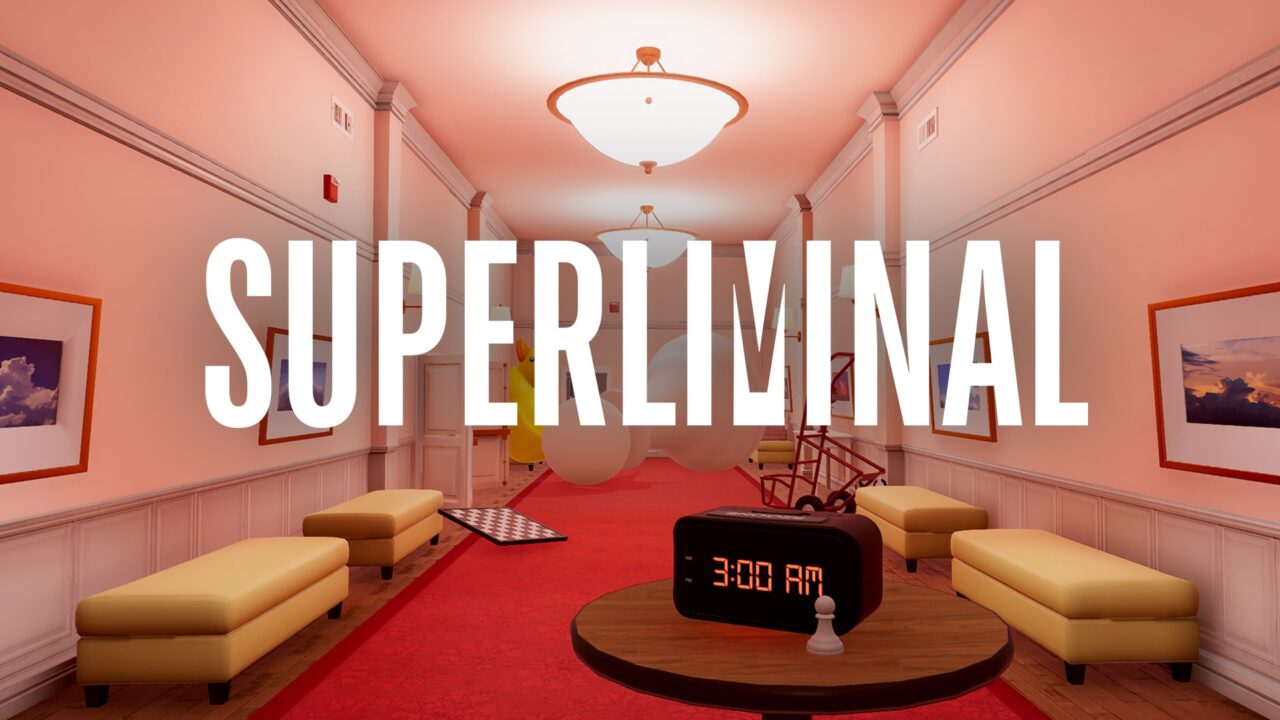Superliminal is one of those games you play for ten minutes and just wonder how they did it. Toying with perspective in an optical illusion or a Salvador Dali painting is impressive enough, but a team of human beings made this thing which twists and distorts objects and landscapes entirely depending on player input, doing so seemingly on the fly dependent on your actions and perspective. Meanwhile, it took me a week to set up a simple WordPress blog.
Pillow Castle, the developers behind this mind bending puzzler, rather unpretentiously disclose in their developers commentary (wonderful addition to any game by the way) that it was a piece of piss. “The concepts are actually quite easy”, Albert Shih claims. “It’s all proportional” they add, in reference to the resizing mechanic the game pivots around.

I’ll have to take their word for it, because frankly, Superliminal plays like something nothing short of genius. Picking up a foot tall cube at your feet and swiveling your direction up towards the wall will naturally make the cube look bigger in the players eyes; any game does this, mimicking the way eyes perceive any object when placed right in front of our mugs. Only, letting go of that object should have it fall back down to our shoes, in all its miniature stature. Not in Superliminal. The cube is now across the room, ten feet tall, just as it appeared before we let go. How? Proportions or sumin’.
It takes some time getting used to, for sure. It is purposefully going against what people know about the material matter, but it plays with an idea we’ve all surely thought of. I most vividly relate it to the perpetual stream of holiday photos where someone is pushing the Leaning Tower of Pisa. It’s humorous as a static image, but to actually manipulate it is something else, and it has a learning curve. In the developer commentary, they describe how they paced the puzzles the way they did to hone the players skills in where the object will actually land. You first toy with the basic idea, but quickly you’re set a task: two panes of glass with small holes stand in front of you and through the pane furthest from you in a button, go place the cube on the button. It’s tricky to visualise, as mastery of simply resizing objects is a distant accomplishment. Lining it up just right, shrinking it down to a size which fits through the gaps and also doesn’t attempt to enlarge when placing it on the button is challenging.
You eventually get there, and the game doesn’t stick to the same genre of puzzles for too long either, sometimes venturing into more passive perspective challenges where standing in the correct spot will manifest an object unseen from other angles. It’s a laugh for a good hour or two, and I was consistently impressed that the developers could even create the tools to make puzzling like this possible, it’s a wholly distinct mechanic.

A narrative is prevalent throughout, but only really takes command in the second half of the game. It’s unfortunate too, as the puzzling doesn’t just take a back seat to the story, but seems to jump out the car as a whole, as Superliminal eventually plays like any other walking simulator with a focus on trippy imagery, perhaps even more aptly tying itself to Salvador Dali pieces as it becomes less interactive and more of a static experience. I say “narrative”, but it’s thin enough that I consider it more a parable than a fleshed out story. Superliminal is thoroughly a game about perspective, which sadly offers simply that as a message: stand back and look at a situation from a different perspective. Well no shit. It’s not overbearing or offensive, quite the opposite. While audio tidbits are spread sporadically through the game’s length, it’s only at the final cutscene does the game make an actual attempt to establish a narrative crux. It comes out of nowhere and comes off as forced.
While it’s not unpleasant, I do think a couple of things happened here as a result of it. For one, it’s unignorable how blatantly the game shifts from pure puzzle game to walking simulator. Two games which are obligatory comparisons when talking about Superliminal are Portal and The Stanley Parable, both pinnacles of their genres, ripe for aping, and that’s exactly what Superliminal feels like it’s doing in some aspects. Shameless aping. The GLaDOS-esque AI guiding the player evokes hints of the same sarcasm present in Portal’s maniacal antagonist, while the entire look and feel of Superliminal’s slow traversal and slight humour suggests the other link. The second point directly relates to its The Stanley Parable comparison, as it felt like the game indulged in the same tone in a vein attempt to “make a point”, when in reality, I don’t think a point ever needed to be made, and if it did, the puzzling never should have been abandoned in favour of a tropey walking simulator section.
My primary criticism all stems from this abrupt shift into territory the game wasn’t destined for. To me, the first hour of Superliminal was nothing but sheer awe at how unique the gameplay was, integrating a concept as ancient as abstract perspectives into modern video gaming, a task which to me would appear complex and perhaps impossible. It was fun, fresh and memorable, only sullied lopsidedness and a short overall length. Superliminal is more than a tech demo. To imply it’s nothing more than such would appear offensive, as the best parts of Superliminal rival the best puzzles from the apex of the genre. Too brief, too messy.

